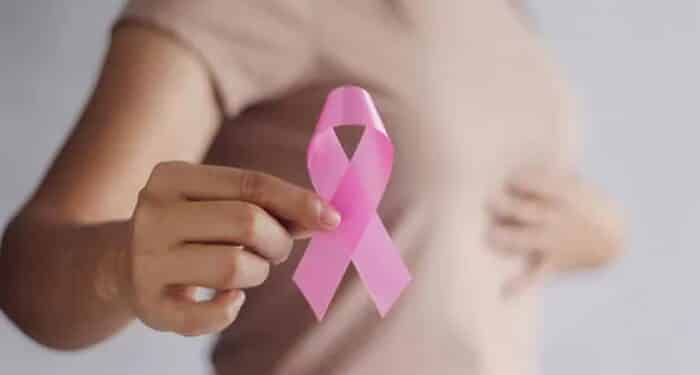A new study on breast cancer deaths raises questions about whether Black women should be screened at earlier ages.
An international team of researchers wrote in the study, published Wednesday in the journal JAMA Network Open, that clinical trials may be warranted to investigate whether screening guidelines should recommend Black women start screening at younger ages, around 42 instead of 50.
The US Preventive Services Task Force, a group of independent medical experts whose recommendations help guide doctors’ decisions, recommends biennial screening for women starting at age 50. The Task Force says that a decision to start screening prior to 50 “should be an individual one.” Many medical groups, including the American Cancer Society and Mayo Clinic, already emphasize that women have the option to start screening with a mammogram every year, starting at age 40.
Even though Black women have a 4% lower incidence rate of breast cancer than white women, they have a 40% higher breast cancer death rate.
“The take-home message for US clinicians and health policymakers is simple. Clinicians and radiologists should consider race and ethnicity when determining the age at which breast cancer screening should begin,” Dr Mahdi Fallah, an author of the new study and leader of the Risk Adapted Cancer Prevention Group at the German Cancer Research Center in Heidelberg, Germany, said in an email.
“Also, health policymakers can consider a risk-adapted approach to breast cancer screening to address racial disparities in breast cancer mortality, especially mortality before the recommended age of population screening,” said Fallah, who is also a visiting professor at Lund University in Sweden and an adjunct professor at the University of Bern in Switzerland.
What screening guidelines say
Breast cancer screenings are typically performed using a mammogram, which is an X-ray picture taken of the breast that doctors examine to look for early signs of breast cancer developing.
“Guidelines for screening actually already do recommend basing a woman’s time to initiate screening on the risk of developing cancer, though race and ethnicity have not been traditional factors that go into these decisions,” Dr. Rachel Freedman, a breast oncologist at Dana-Farber Cancer Institute, who was not involved in the new study, said in an email.
The American Cancer Society currently recommends that all women consider mammogram screenings for breast cancer risk starting at the age of 40, and for women 45 to 54, it’s recommended to get mammograms every year. Those 55 and older can switch to screening every other year if they choose.
But “we are in the process of updating our breast cancer screening guidelines, and we are examining the scientific literature for how screening guidelines could differ for women in different racial and ethnic groups, and by other risk factors, in a way that would reduce disparities based on risk and disparities in outcome,” Robert Smith, senior vice president for cancer screening at the American Cancer Society, who was not involved in the new study, said in an email. “We are examining these issues closely.”
The American Cancer Society’s recommendations appear to align with the findings in the new study, as the research highlights how screening guidelines should not be a “one-size-fits-all policy,” but rather help guide conversations that patients and their doctors have together.
“We, here at the American Cancer Society, strongly recommend that all women consider a screening mammogram from the age of 40 onwards, and that means discussing with their doctor,” said Dr Arif Kamal, the American Cancer Society’s chief patient officer, who was not involved in the new study.
“The authors highlight that age 50 can be a little late,” Kamal said about the study’s findings on when to begin breast cancer screening. “We are in agreement with that, particularly for women who may be at slightly higher risk.”
Breast cancer risk by age and race
The researchers, from China, Germany, Sweden, Switzerland, and Norway, analyzed data on 415,277 women in the United States who died of breast cancer from 2011 to 2020. The data on invasive breast cancer mortality rates came from the National Center for Health Statistics and was analyzed with the National Cancer Institute’s SEER statistical software.
When the researchers examined the data by race, ethnicity, and age, they found that the rate of breast cancer deaths among women in their 40s was 27 deaths per 100,000 person-years for Black women compared with 15 deaths per 100,000 for white women and 11 deaths per 100,000 for American Indian, Alaska Native, Hispanic, and Asian or Pacific Islander women.
“When the breast cancer mortality rate for Black women in their 40s is 27 deaths per 100,000 person-years, this means 27 out of every 100,000 Black women aged 40–49 in the US die of breast cancer during one year of follow-up. In other words, 0.027% of Black women aged 40–49 die of breast cancer each year,” Fallah said in the email.
In general, for women in the United States, their average risk of dying from breast cancer in the decade after they turn 50, from age 50 to 59, is 0.329%, according to the study.
“However, this risk level is reached at different ages for women from different racial and ethnic groups,” Fallah said. “Black women tend to reach this risk level of 0.329% earlier, at age 42. White women tend to reach it at age 51, American Indian or Alaska Native and Hispanic women at age 57, and Asian or Pacific Islander women later, at age 61.”
So, the researchers determined that when recommending breast cancer screening at age 50 for women, Black women should start at age 42.
Yet “the authors didn’t have any information on whether the women included in this study actually had mammographic screening and at what age. For example, it is possible that many women in this study actually had screening during ages 40–49,” Freedman, of the Dana-Farber Cancer Institute, said in her email.
“This study confirms that the age of breast cancer mortality is younger for Black women, but it doesn’t confirm why or if screening is even the main reason. We have no information about the types of cancers women developed and what treatment they had either, both of which impact mortality from breast cancer,” she said.
Risks and benefits of earlier screening
The harm of starting mammograms at a younger age is that it raises the risk of a false-positive screening result, leading to unnecessary subsequent tests and emotional stress.
However, the benefits associated with earlier breast cancer detection may outweigh the added risk of false positives from earlier screenings, according to the researchers’ study.
They also wrote that health policymakers should pursue equity, not just equality, when it comes to breast cancer screening as a tool to help reduce breast cancer death rates.
Equality in the context of breast cancer screening “means that everyone is screened at the same age, regardless of risk level. On the other hand, equity or risk-adapted screening means that everyone is provided screening according to their individual risk level,” the researchers wrote. “We believe that a fair and risk-adapted screening program may also be associated with optimized resource allocation.”
The new study is “timely and relevant,” given the overall higher mortality rate for breast cancer in Black women and that Black women are more likely to be diagnosed at a younger age compared with other ethnic groups, Dr. Kathie-Ann Joseph, surgical oncologist at NYU Langone’s Perlmutter Cancer Center and professor of surgery and population health at the NYU Grossman School of Medicine, said in an email.
“While some may argue that earlier screening may lead to increased recalls and unnecessary biopsies, women get recalled for additional imaging about 10% of the time, and biopsies are needed in 1–2% of cases, which is quite low,” said Joseph, who was not involved in the new study.
“This has to be compared to the lives saved from earlier screening mammography,” she said. “I would also like to point out that while we certainly want to prevent deaths, earlier screening can have other benefits by allowing women of all racial and ethnic groups to have less extensive surgery and less chemotherapy, which impacts the quality of life.”
Implicit and systemic bias
Breast cancer is the most common cancer among women in the United States, except for skin cancers. This year, it is estimated that about 43,700 women will die from the disease, according to the American Cancer Society, and Black women have the highest death rate from breast cancer.
Even though Black women are 40% more likely than white women to die from the disease, Kamal of the American Cancer Society said that the disparity in deaths is not a result of Black women not following the current mammogram guidelines.
Rather, implicit bias in medicine plays a role.
“In the United States, across the country, there are no differences in mammogram screening rates among Black women and White women. In fact, across the entire country, the number is about 75%. We see about 3 in 4 women – Black, White, Hispanic, and Asian—are on time with their mammograms,” Kamal said.
Yet there are multiple time points after a patient is diagnosed with breast cancer where they may not receive the same quality of care or access to care as their peers.
“For example, Black women are less likely to be offered enrollment in a clinical trial. That is not because of a stated difference in interest. In fact, the enrollment rate in clinical trials is equal among Black women and White women, if they’re asked,” Kamal said.
“What we have to understand is where the implicit and systemic biases held by patients, their caregivers and their families may exist—those that are held within health systems and even policies and practices that impede everyone from having fair and just access to high-quality health care,” he said.
Additionally, Black women have nearly a three-fold increased risk of triple-negative breast cancer. Those particular types of cancer tend to be more common in women younger than 40, grow faster than other types of invasive breast cancer, and have fewer treatment options.
Black women also tend to have denser breast tissue than White women. Having dense tissue in the breast can make it more difficult for radiologists to identify breast cancer on a mammogram, and women with dense breast tissue have a higher risk of breast cancer.
But such biological differences among women represent just a small part of a much larger discussion around racial disparities in breast cancer, Kamal said.
“There are systemic issues—access to care issues—that really go beyond biology,” he said. “The reality is that cancer affects everybody, and it does not discriminate. Where the discrimination sometimes occurs is after the diagnosis, and that’s really what we need to focus on.”











